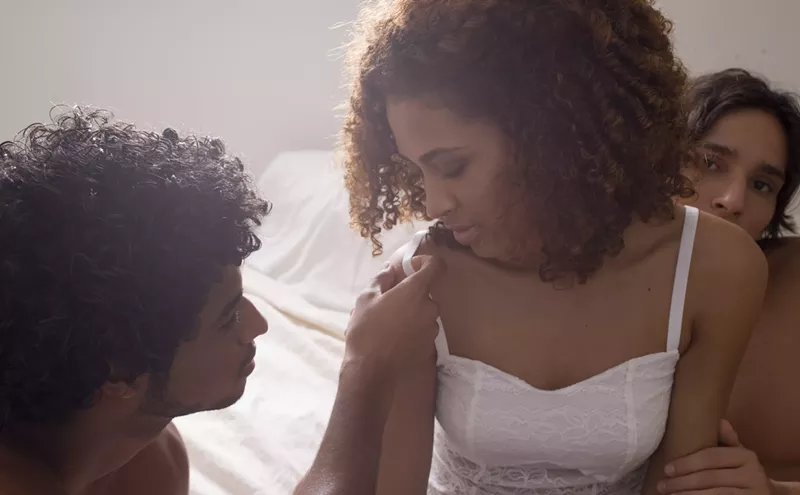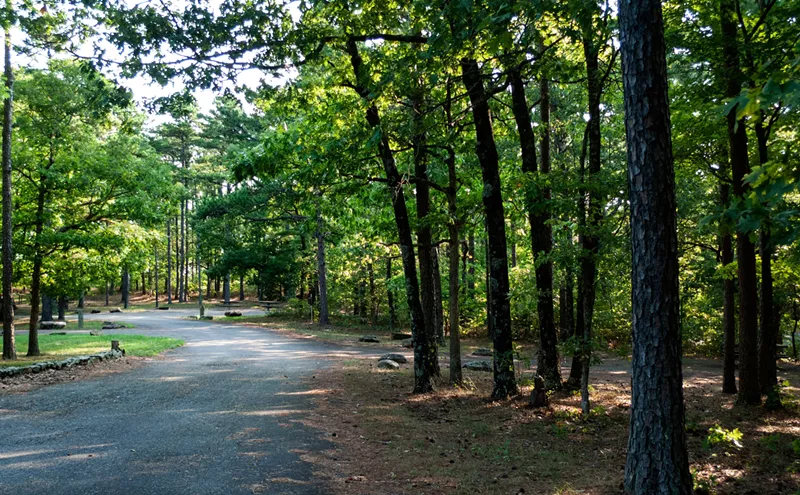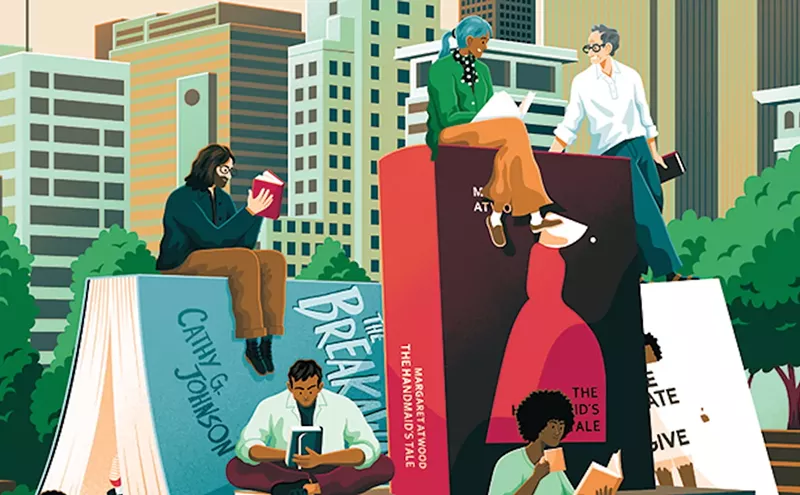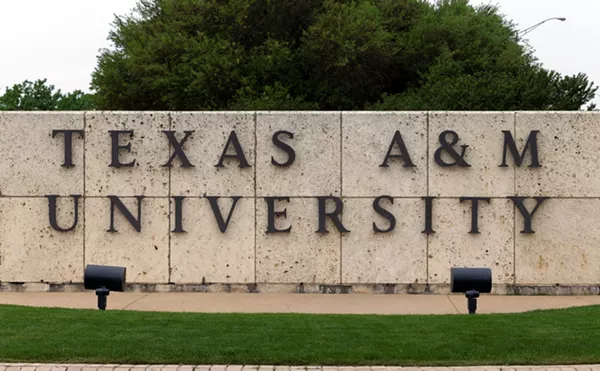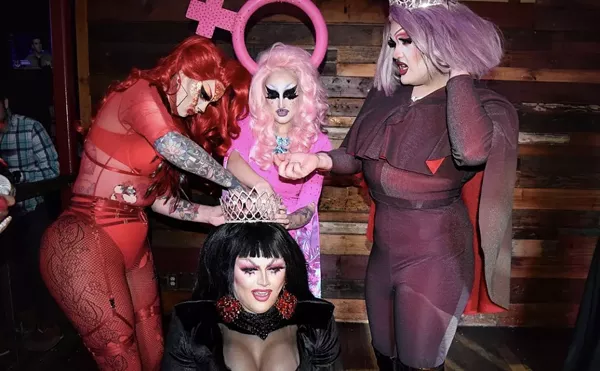The hooks slip in to your skin, like a fish caught on a line. Each hook aligned with a particular area of your body to keep a secure grasp on you without ripping out flesh. It takes years to get it right. It takes a practiced hand and a knowledgeable eye, but for this community to exist, it takes people interested in tapping into a new level of consciousness. Or so I'm told by visitors to the Suspension Convention.
Suscon takes place Friday - Sunday, April 18-20 at the Sterling Hotel, where practitioners learn safety techniques, gain insight from community experts, and participate in advanced suspensions. The Web site makes one thing very clear: This is not a place for beginners.
However if your counterculture curiosity gets the best of you and you're looking for an entry point, Fakir Musafar would like to invite you to his talk at 9 p.m. Saturday night. Known as the Father of Modern Primitives, Musafar dedicated his life to the spiritual side of body mutilation and will speak to the ritualistic aspects of suspension.
"A lot of the kids today, participate in suspension pretty much for sport or self-discovery," he says from his home in California when we spoke over the phone. "Many of them haven't taken them further than that. If you look back at people who started this in the first place, you can experience even more."
Musafar (born Ronald Loomis) grew up in the 1930s in Aberdeen, South Dakota, surrounded by tribes of Native Americans. During that time, the federal government was enforcing Native American integration, and even as a preteen, Musafar found himself rejecting the Luthern church for a different spiritual life. The elders introduced him to the concept of body piercings and the ritual of pulling the hooks in the skin.
"For them, it was not out of ego or done out of showmanship," Musafar says. "It was a rite of passage, an initiation. You were always facing the sun and you kept pulling, not to break free, not to pull hard, but just to pull as long as you can."
Another practice was full suspension, which Musafar began to experiment with as a teenager. But if suspension is considered counterculture now, in the mid 20th century, it was considered mentally sick.
"If people had known about my practices through my teenage years and during my 20s, they probably would've thrown me into a mental institution," Musafar says. "It wasn't acceptable."
For 50 years, Musafar dedicated himself to the study of body decoration and rituals, presenting his research and views in scholarly writing and in video. His thoughtful approach to the subjects of body sculpting and modification played a role in the progression of the community. But his focus on the spiritual and historical aspects of the ritual will be the crux of his talk at Suscon.
"I want the kids at Suscon to really understand what they're doing. This is not part of scientific culture. It came from somewhere, you've borrowed it, you've acclimated it, you've adapted it, without understanding where it came from, you miss out on parts of the experience," Musafar says. "It's an old and honorable tradition and this is what they did and why they did it. And now here's what we're doing today."
Musafar's talk, "Flight to Spirit" takes place at the Lakewood Theater at 9 p.m. Saturday and includes a suspension ritual. Tickets are $15. Last year, the Observer attended and watched through our fingers.



